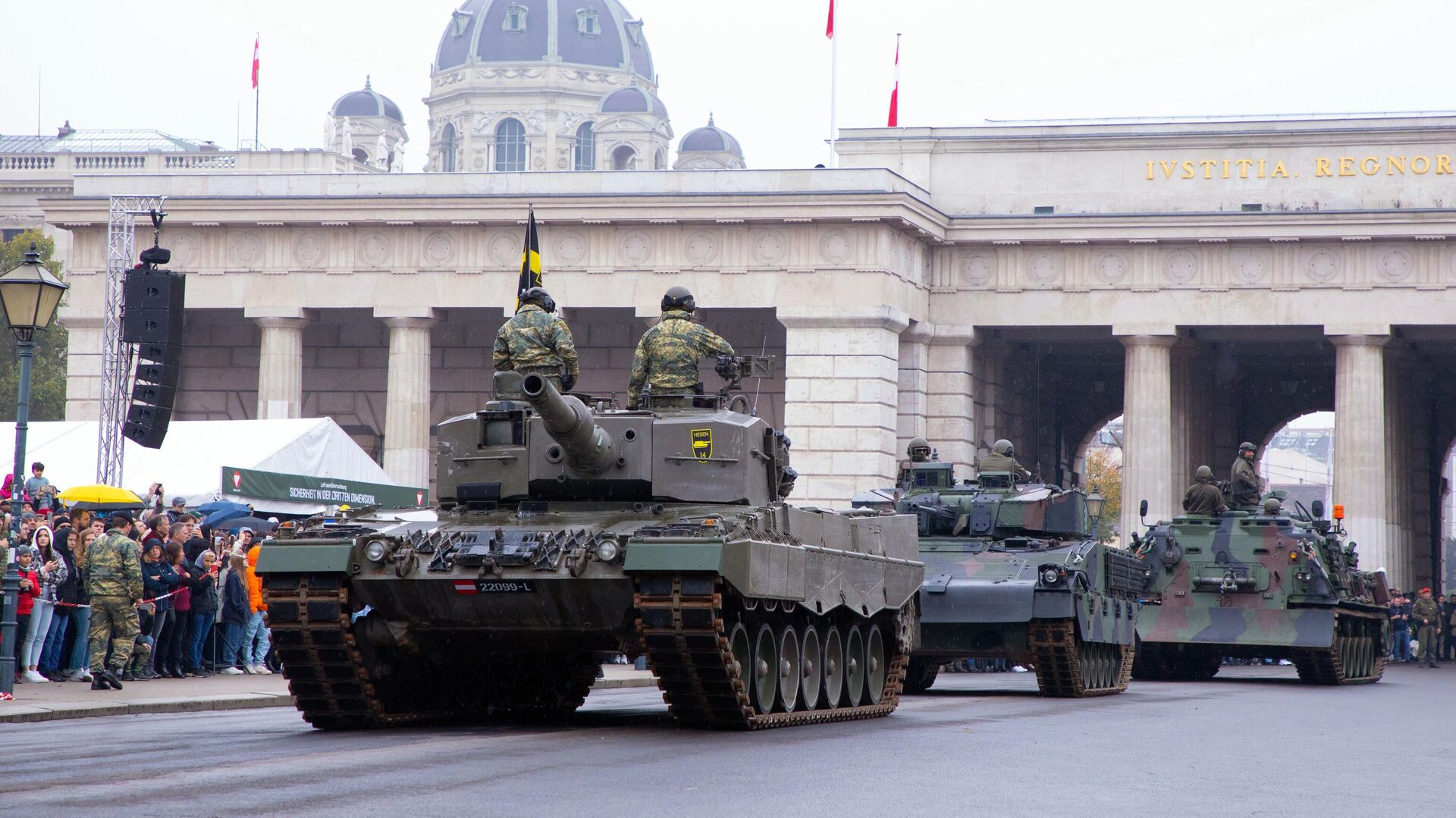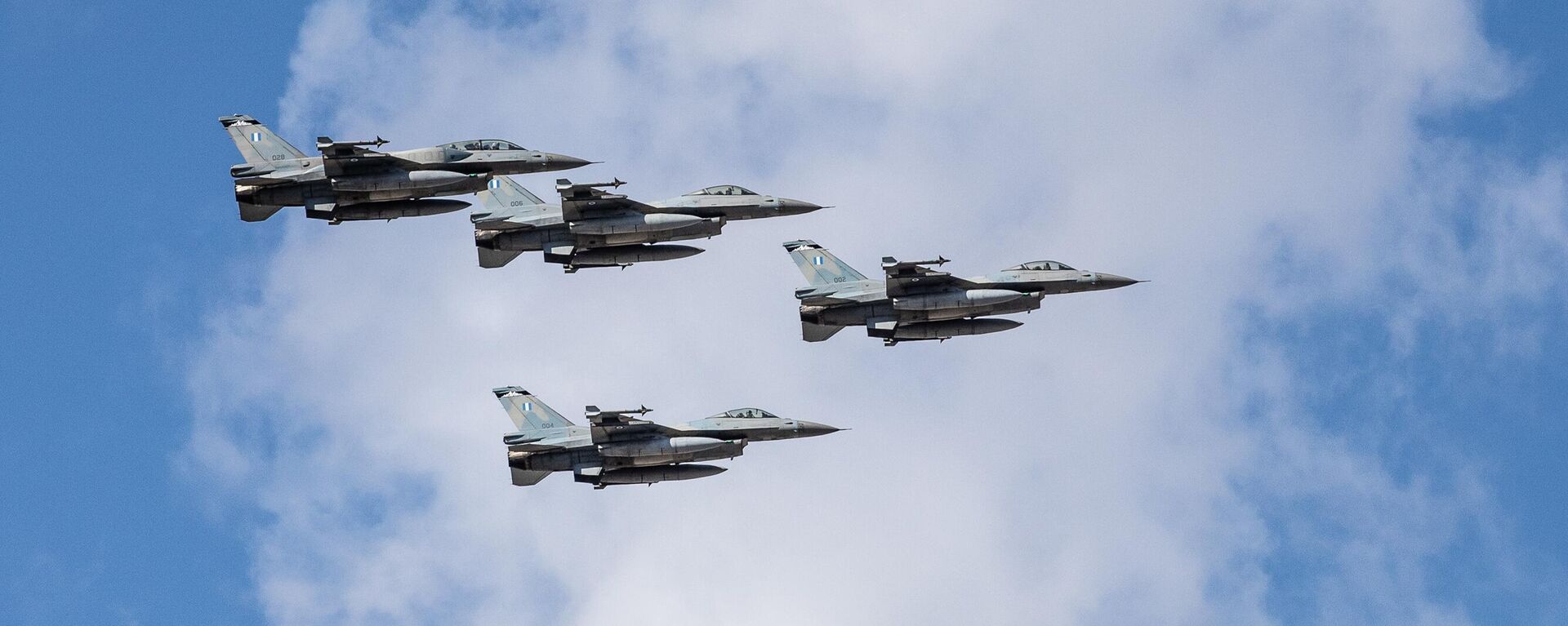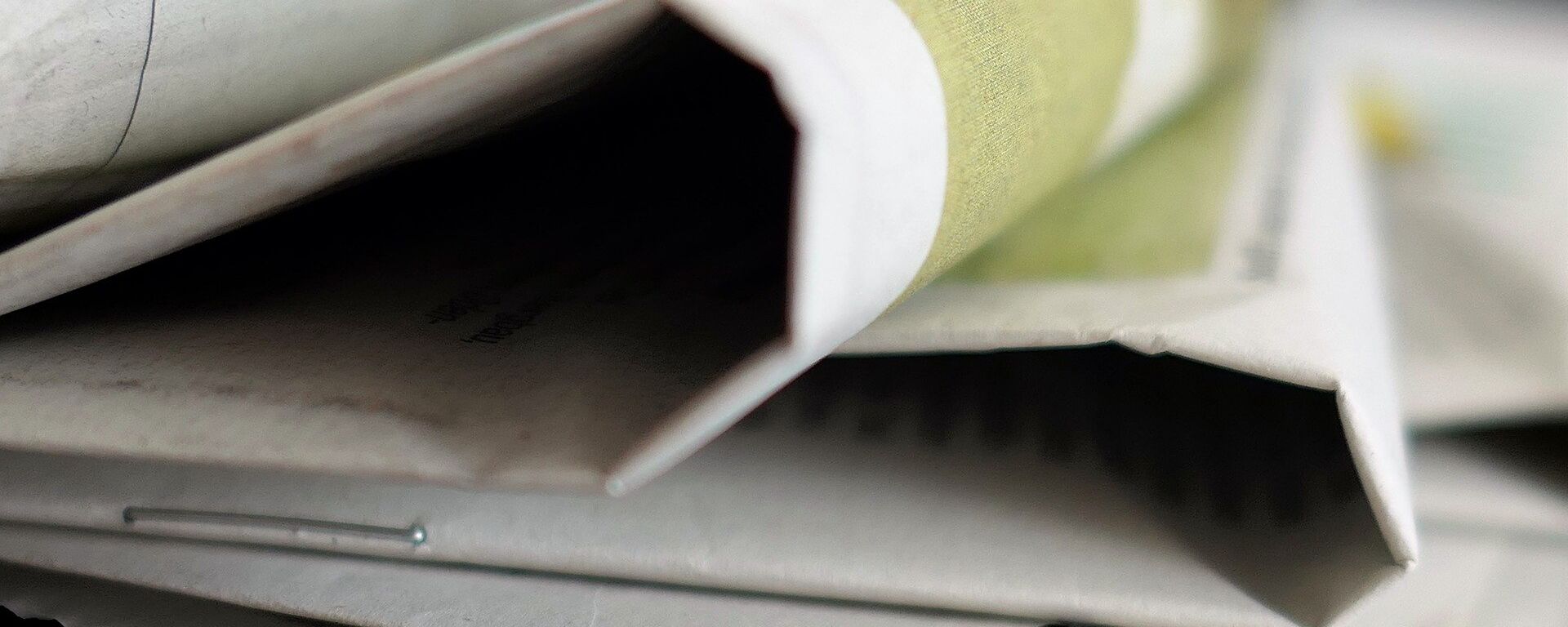https://sputnikglobe.com/20230323/nato-plans-to-ramp-up-defence-budgets-and-arms-supplies-to-ukraine-will-fail-1108724094.html
NATO Plans to Ramp Up Defence Budgets and Arms Supplies to Ukraine Will Fail
NATO Plans to Ramp Up Defence Budgets and Arms Supplies to Ukraine Will Fail
Sputnik International
NATO members have virtually disarmed their armed forces to fuel their proxy conflict with Russia in Ukraine. Paolo Raffone and Tiberio Graziani explained the motives behind it.
2023-03-23T15:49+0000
2023-03-23T15:49+0000
2023-03-23T15:49+0000
nato
ukraine
russia
european union (eu)
russia's special operation in ukraine
defense spending
european defense agency
france
germany
poland
https://cdn1.img.sputnikglobe.com/img/07e7/02/03/1106948854_0:312:3087:2048_1920x0_80_0_0_06d50239e794b472bbde8e0dd92153e0.jpg
NATO's demands for more military spending and shipments of arms to the Kiev regime are doomed to fail, two Italian analysts have said. Paolo Raffone and Tiberio Graziani told Sputnik that the European economy cannot bear the strain of of funding the proxy conflict against Russia.NATO Secretary-General Jens Stoltenberg will make another demand for NATO members to meet the long-standing target of spending two per cent of annual gross domestic product (GDP) on defence at the bloc's July summit in the Lithuanian capital Vilnius.Graziani noted that Germany was the only European NATO member which could afford that level of spending, since "Europe as a whole is still suffering from the economic and financial crisis of 2007/2008."But he said that under pressure from Washington and London, Brussels was trying to find a "collective" solution to meet Stoltenberg's demands.Indeed, 18 European states have just agreed to divert €2 billion from the European Union's increasingly ill-named European Peace Facility fund to buy a million rounds of artillery ammunition for Ukraine and to replenish their own depleted stockpiles.Graziani said the Collaborative Procurement of Ammunition agreement, to be controlled by the European Defense Agency (EDA), "allows for cost savings through economies of scale." But he noted that joint purchase through the EDA could affect the sovereignty of the various national defences."The US will profit from the EU's decision by selling more US arms to those countries emptying out their arsenals to prolong the bloodshed in Ukraine — especially Poland, Raffone said.Graziani said the UK would also cash in, saying: "The United States and Great Britain derive an immediate advantage from it, as they have at their disposal — in this which is a real proxy war — armaments at the expense of European countries."War EconomyThe rush to increase artillery shell production could signal a broader trend within the European Union (EU) towards militarising the economy. Raffone agrees that "to a certain extent, after adopting sanction packages and agreeing to support militarily Ukraine the EU is already in an economy of war."The arms agreement should in theory strengthen the European defense industry," Graziani added, but "It should be borne in mind that France — the only EU country with nuclear weapons — has always been proud of its sovereignty, particularly in the area of defence."The West's policy of arming Ukraine have escalated in the recent months to include the main battle tanks of of several NATO armies and jet fighters from Slovakia and Poland. But what is the motive for the European armies to disarm themselves?"The EU pursues a path that has been mapped out by the Pentagon, Washington and London," Graziani argued, which has accelerated the crisis. Meanwhile, Brussels is under pressure and facing competition from the British arms industry, which is now "supplying depleted uranium ammunition to Kiev."
https://sputnikglobe.com/20230316/polands-transfer-of-mig-29s-to-ukraine-does-not-change-us-stance-on-f-16s-white-house-1108479830.html
https://sputnikglobe.com/20230322/british-media-downplays-risks-of-depleted-uranium-ammo-now-russians-are-the-target-1108685922.html
ukraine
russia
france
germany
poland
slovakia
Sputnik International
feedback@sputniknews.com
+74956456601
MIA „Rosiya Segodnya“
2023
James Tweedie
https://cdn1.img.sputnikglobe.com/img/07e4/08/1c/1080307270_0:3:397:400_100x100_80_0_0_7777393b9b18802f2e3c5eaa9cbcc612.png
James Tweedie
https://cdn1.img.sputnikglobe.com/img/07e4/08/1c/1080307270_0:3:397:400_100x100_80_0_0_7777393b9b18802f2e3c5eaa9cbcc612.png
News
en_EN
Sputnik International
feedback@sputniknews.com
+74956456601
MIA „Rosiya Segodnya“
Sputnik International
feedback@sputniknews.com
+74956456601
MIA „Rosiya Segodnya“
James Tweedie
https://cdn1.img.sputnikglobe.com/img/07e4/08/1c/1080307270_0:3:397:400_100x100_80_0_0_7777393b9b18802f2e3c5eaa9cbcc612.png
ukraine, european union, eu, nato, poland, russia, germany, france
ukraine, european union, eu, nato, poland, russia, germany, france
NATO Plans to Ramp Up Defence Budgets and Arms Supplies to Ukraine Will Fail
The alliance members have virtually disarmed their forces to fuel their proxy conflict with Russia in Ukraine. Paolo Raffone, a strategic analyst and director of the CIPI Foundation in Brussels, and Tiberio Graziani, Chairman at the International Institute for Global Analyses, explained the motives behind this odd decision.
NATO's demands for more military spending and shipments of arms to the Kiev regime are doomed to fail, two Italian analysts have said.
Paolo Raffone and Tiberio Graziani told Sputnik that the European economy cannot bear the strain of of funding the proxy conflict against Russia.
NATO Secretary-General Jens Stoltenberg will make another demand for NATO members to meet the long-standing target of spending two per cent of annual gross domestic product (GDP) on defence at the bloc's July summit in the Lithuanian capital Vilnius.
"Practically, the target is met by the Baltics, Poland, and maybe by Czech republic and Romania. The other member states keep adhering to the target 'in the future'," Raffone pointed out.
Graziani noted that Germany was the only European NATO member which could afford that level of spending, since "Europe as a whole is still suffering from the economic and financial crisis of 2007/2008."
But he said that under pressure from Washington and London, Brussels was trying to find a "collective" solution to meet Stoltenberg's demands.
Indeed, 18 European states have just agreed to divert €2 billion from the European Union's increasingly ill-named
European Peace Facility fund to buy a million rounds of artillery ammunition for Ukraine and to replenish their own depleted stockpiles.
Graziani said the Collaborative Procurement of Ammunition agreement, to be controlled by the European Defense Agency (EDA), "allows for cost savings through economies of scale." But he noted that joint purchase through the EDA could affect the sovereignty of the various national defences."
The US will profit from the EU's decision by selling more US arms to those countries emptying out their arsenals to prolong the bloodshed in Ukraine — especially Poland, Raffone said.
In the longer term, "a prolonged war of attrition will allow the US to keep checking the EU member states while also trying to prevent them from finding exit strategies with Russia and China," he added.
Graziani said the UK would also cash in, saying: "The United States and Great Britain derive an immediate advantage from it, as they have at their disposal — in this which is a real proxy war — armaments at the expense of European countries."
The rush to increase artillery shell production could signal a broader trend within the European Union (EU) towards militarising the economy. Raffone agrees that "to a certain extent, after adopting sanction packages and agreeing to support militarily Ukraine the EU is already in an economy of war."
"The EU economy is more fragile due to the sanctions and the energy supply cost increase," however, while the recent banking crisis on both sides of the Atlantic is "very problematic with potentially destructive consequences. Inflation is still there, and central bank measures do not seem effective."
The arms agreement should in theory strengthen the European defense industry," Graziani added, but "It should be borne in mind that France — the only EU country with nuclear weapons — has always been proud of its sovereignty, particularly in the area of defence."
The West's policy of arming Ukraine have escalated in the recent months to include the main battle tanks of of several NATO armies and jet fighters from Slovakia and Poland. But what is the motive for the European armies to disarm themselves?
"With the exception of Poland, Baltics, Czech and Romania, that have increased their armament production, the rest of EU is emptying stocks of old materials but there are no signs of increases in production," Raffone said.
"The EU pursues a path that has been mapped out by the Pentagon, Washington and London," Graziani argued, which has accelerated the crisis. Meanwhile, Brussels is under pressure and facing competition from the British arms industry, which is now "supplying depleted uranium ammunition to Kiev."







